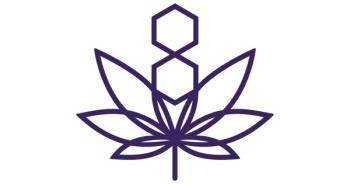
Crazy 8s: Does Delta-8 THC Threaten the Supplement Industry?
In this article our sister brand, Nutritional Outlook takes a look at delta-8 THC and where regulators could ultimately land in regard to this controversial cannabinoid.
When the Agriculture Improvement Act of 2018—a.k.a. the 2018 Farm Bill—effectively legalized hemp-derived cannabidiol (CBD), it planted the seeds of what would soon sprout into a robust field of functional foods and supplements designed to deliver the cannabis plant’s health-and-wellness benefits.
But what the Farm Bill didn’t do was clarify which of hemp’s constituent cannabinoids beyond CBD are fair game for food, drink, and supplement formulation.
So when one cannabinoid in particular—delta-8 THC—started appearing in everything from gummies to baked goods, and when adverse events involving those products swiftly followed, the compound caught regulators’ attention, for all the wrong reasons.
It caught industry’s attention, too. For while fly-by-night manufacturers happy to play fast-and-loose with cannabis law may not think twice about the harm that suspicious cannabinoids can inflict on both consumers’ health and their own reputations, reputable brands do. And they’re looking to regulators for guidance on how to proceed.
Milder High
Chemically speaking, delta-8 tetrahydrocannabinol is an isomer of the delta-9 THC that gets the credit—or blame—for producing cannabis’s psychoactive effects. And though delta-8 THC occurs naturally in the cannabis plant at levels so low as to be insignificant, it, too, is psychoactive.
Granted, delta-8 THC produces a markedly less-potent intoxication than does delta-9; nevertheless, notes Shawn Hauser, partner, Vicente LLP (Denver), and co-chair of the firm’s hemp and cannabinoids department, “As with delta-9 THC, consumers enjoy the psychoactive, intoxicating, and sometimes stress-relieving effects of delta-8, and many enjoy the ‘milder’ high.”
Thus those same consumers—in contravention of what Hauser describes as “outdated laws criminalizing marijuana and denying consumers safe access to marijuana products”—have fueled what appears to be a burgeoning market for delta-8 THC and other hemp-derived intoxicants.
And while the size of that market defies precise determination “given the complex regulatory framework” surrounding cannabis-product sales, Hauser says, she points to a Forbes report indicating that in 2023 alone, delta-8 THC has already generated $2 billion in revenue (1).
Serious Business
That makes delta-8 THC a potentially serious business—in more ways than one. After all, says Ashish R. Talati, partner, Amin Talati Wasserman (Chicago), despite popular demand for the cannabinoid, “The legality of delta-8 THC under controlled-substances laws remains an open question.”
It all goes back to the 2018 Farm Bill, which defines legal hemp as “the plant Cannabis sativa L. and any part of that plant, including the seeds thereof and all derivatives, extracts, cannabinoids, isomers, acids, salts, and salts of isomers, whether growing or not, with a delta-9 [THC] concentration of not more than 0.3% on a dry weight basis.”
While that spells out limits for the delta-9 isomer, it stays mum on delta-8. Moreover, a Drug Enforcement Administration (DEA) interim final rule issued in 2020 clarifies that all synthetically derived THC—even if synthesized from natural precursors such as hemp-derived CBD—qualifies as a Schedule I controlled substance. And as Hauser points out, most commercial delta-8 THC is synthetically derived.
“DEA has declined to significantly enforce this position and instead has largely deferred to states in regulating delta-8 and other cannabinoids,” she notes. And while she and others expect the 2023 Farm Bill to further clarify synthetic cannabinoids’ regulatory standing, “Given USDA’s jurisdictional limitations,” she says, “it’s uncertain whether and to what extent such will be addressed.”
Additive or Adulterant?
And that’s just DEA’s position; other regulators have strong feelings about delta-8 THC, too. For example, Talati notes, “While delta-8 THC’s legal status is somewhat grey under the controlled-substances laws, it’s more black and white when it comes to FDA.”
Specifically, FDA currently considers delta-8 THC a “food additive” when formulated into a conventional food or beverage product. But FDA also deems any food additive to be prima-facie unsafe unless the agency has approved it for its intended use prior to its being marketed in a product. So by that logic, Talati explains, “Since delta-8 THC is not approved for use in any conventional food, foods containing it are considered adulterated by the FDA.”
Adverse Events
And that brings us back to those adverse-event reports.
“With consumers demanding cannabis products, but with many not having access to marijuana in many states,” Hauser notes, “delta-8 is showing up in products in all forms of retail venues—gas stations, convenience stores, vape shops, dispensaries—as well as online.”
And as FDA reported in a consumer update titled “5 Things to Know About Delta-8 Tetrahydrocannabinol—Delta-8 THC,” the agency fielded 104 adverse-event reports in patients who ingested delta-8 THC products between December 1, 2020, and February 28, 2022, 55% of which required intervention or hospital admission, and 66% of which involved delta-8 THC delivered via food (2).
Shady Extraction
The reason these products are apparently causing such harm, speculation goes, owes to the extraction process used to create most commercial delta-8 THC—a process that Hauser says “poses substantial consumer risk unless producers comply with certain safety standards.”
As Hauser explains, these aren’t the typical extraction and isolation methods used to produce garden-variety CBD, as they involve “complex and advanced chemistry more akin to the creation of pharmaceutical active ingredients.”
Thus, she continues, “For legitimate public-safety reasons, the production of these ingredients requires significant controls and characterization of safety and toxicological risks, including compliance with cGMPs. State regulatory agencies are ill-equipped to regulate production at this level, and a limited number of products in the industry currently comply with these standards.”
Loose Labeling
Another safety risk on FDA’s radar involves the slipshod label declarations on delta-8 THC products—declarations that not only “likely expose consumers to much higher levels of the substance than are naturally occurring in hemp cannabis raw extracts,” the agency’s consumer guidance warns, but that likely do expose those consumers to higher levels of delta-8 THC than the labels actually declare.
As Hauser says, “Consumers should be aware that the majority of delta-8 products on the market have labeling that misstates the amount of THC” and that may not disclose the presence of unidentified compounds also possibly involved in adverse events—oversights that she believes “reflect that safety concerns can arise from the unregulated and unsafe manufacturing of products with these synthetics.”
And while brands that get popped for formulating with such ingredients risk civil and criminal penalties for violating both FDA and FTC regulations “as well as applicable state laws” and product-liability suits, Hauser believes that a more rational system would head off such violations before they happen.
Time for Change
So if she wrote the laws, “All cannabis, hemp, and marijuana would be legal for medical and adult use, and subject to reasonable product-safety regulations at the federal level,” she says.
Short of that, she continues, “I think delta-8 THC highlights the need for a modernized regulatory structure for foods and dietary supplements at the federal level, as it challenges the legal and functional integrity of the current framework and of FDA’s resources to enforce it—which framework many argue is outdated anyway and must be modernized to fulfill its intent in ensuring consumer safety.”
And that job, she notes, falls to lawmakers. “While FDA has exercised minimal enforcement and issued consumer advisories highlighting the illegality of delta-8 THC under the Federal Food, Drug, and Cosmetic Act, as well as its public-safety concerns, it has limited resources and has been clear that it believes Congress needs to develop a new regulatory framework to regulate hemp-derived cannabinoids.”
She advocates for a scientific and data-driven approach, especially in light of the legitimate safety concerns surrounding novel synthetic cannabinoids. And the good news? “Reasonable, commonsense frameworks and solutions already exist in established standards and regulations to address how to ensure products are evaluated and regulated to keep consumers safe,” she concludes. “Without such standards, we risk consumer safety, as well as industry’s advancement and credibility. It’s important that the hemp and cannabis industries work together, with a focus on product and consumer safety, to achieve federal and state reforms.”
References
- Sabaghi, D. Delta-8 THC generated $2 billion in revenue in two years, report finds. Forbes. January 16, 2023.
https://www.forbes.com/sites/dariosabaghi/2023/01/16/delta-8-thc-generated-2-billion-in-revenue-in-2-years-report-finds/?sh=3da77fbe4a62 - FDA. 5 things to know about delta-8 tetrahydrocannabinol–Delta-8 THC. Updated May 4, 2022.
https://www.fda.gov/consumers/consumer-updates/5-things-know-about-delta-8-tetrahydrocannabinol-delta-8-thc#:~:text=66%25%20described%20adverse%20events%20after,confusion%2C%20and%20loss%20of%20consciousness
Newsletter
Unlock the latest breakthroughs in cannabis science—subscribe now to get expert insights, research, and industry updates delivered to your inbox.




